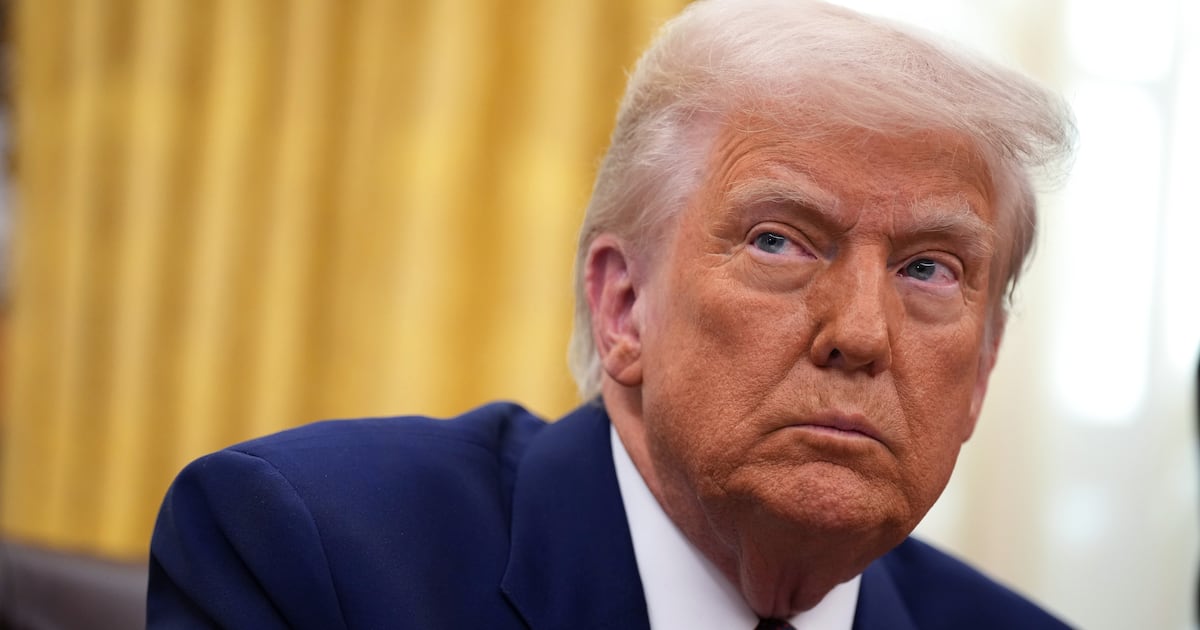In the aftermath of Russia’s annexation of the Crimea region of Ukraine in 2014, Democrats and Republicans in Congress overwhelmingly rallied around measures to condemn the Kremlin’s actions and provide military and economic aid to Ukraine’s government.
In that era of divided government, pushing back on Russia was a rare area of bipartisan consensus. But a small group of lawmakers—usually a dozen or fewer—routinely opposed those bills. One of them was Beto O’Rourke, then a first-term Democratic congressman from Texas.
Since jumping into presidential politics, O’Rourke has been forced to answer for his past positions on a range of subjects, from his early advocacy of “means testing” government benefits to his endorsement of single-payer health care during his 2018 Senate run.
Little, however, has been made of the former congressman’s record on Russia policy.
Following Russia’s February 2014 incursion in Crimea, O’Rourke was one of just two Democrats to vote down several Ukraine-related measures, including a broad aid package—which included $1 billion in loan guarantees to Ukraine and support for the country’s defenses—that passed overwhelmingly. O’Rourke was also one of 12 lawmakers to vote against promoting U.S. media like Radio Free Europe and Voice of America in the region.
In December 2014, O’Rourke was one of 10 House members to vote against a symbolic resolution that called out Russian President Vladimir Putin for “carry[ing] out a policy of aggression against neighboring countries aimed at political and economic domination.”
The lone Democrat usually joining O’Rourke in voting against these measures, then-Rep. Alan Grayson of Florida, praised Russia’s internationally condemned annexation as a “a virtually bloodless transfer of power." They were often joined, too, by then-Rep. Dana Rohrabacher (R-CA), who was so close to the Kremlin that his ties warranted investigation by the FBI and the Senate Intelligence Committee.
O’Rourke, the Washington Post reported at the time, was unavailable for comment on his vote against the Ukraine aid package. His campaign did not respond to request for comment on the votes from The Daily Beast.
Recently, O’Rourke has gone further than some of his rivals on the issue of Russian election-meddling. He has claimed it is clear “beyond a shadow of a doubt” that President Trump attempted to collude with Russia during the 2016 election. In 2017, he joined several other Democratic lawmakers in pressuring Trump to affirm U.S. commitment to NATO’s foundational principle of mutual defense, as the president questioned the transatlantic defense pact.
Still, according to Rachel Ellehuus, deputy director of the Europe program at the Center for Strategic and International Studies think tank, some of O’Rourke’s votes were just plain weird for the time.
“It was a little unusual for a Democrat to be skeptical even of something that is clearly just defensive security assistance,” she said. “Part of it could come from limited foreign policy experience, part of it could come from a junior congressman wanting to keep the door open for future relations with Russia.”
Ellehuus mentioned a candidate O’Rourke may be trying to emulate now, by way of understanding his early congressional votes. “You saw this with Obama, this idea we could confront the Russians when we had to but cooperate with them on certain areas,” she said.
From his perch in the House Armed Services Committee, O’Rourke also repeatedly asked Pentagon officials if they were thinking about how U.S. assistance to Ukraine—and U.S. arming of rebels fighting the regime of Syrian dictator Bashar al-Assad, a Putin ally—might lead to unintended consequences.
“How,” O’Rourke asked Army Lt. Gen William Mayville in February 2015, “are you approaching those second and third order consequences in arming moderate opposition forces in Syria potentially sending weapons and aid to Ukraine?”
Mayville, a top Pentagon official, defended arming of Syrian rebels and the military support of countries in Eastern Europe, like Ukraine.
“I'm out of time,” O’Rourke responded, “but what I'm really interested in knowing for the future is what potential threats are we generating by interventions in these two areas, Syria and Ukraine.”
These questions could easily be interpreted as a skeptical legislator simply doing due diligence about a significant foreign policy issue. But they were considered notable enough to draw the attention of Sputnik News, the Kremlin-linked news organization, which interviewed O’Rourke afterward. “What are the potential unintended consequences of arming Ukraine? I don’t know the answer,” O’Rourke said to Sputnik.
O’Rourke noted some interventions “make a lot of sense at the time,” bringing up the Islamist militants that the U.S. backed to fight the Soviet Union. “We didn’t look at… The second or third order consequences,” he said.
Within the Democratic primary field, O’Rourke is hardly the only candidate to have challenged consensus U.S. foreign policy. Rep. Tulsi Gabbard (D-HI), who is running as a peacenik non-interventionist, has defended Syria’s Assad and vocally opposed U.S. involvement in the civil war there. She has emerged as the Kremlin’s favored candidate and has received warm write-ups in associated media outlets like Sputnik and RT.
O’Rourke, meanwhile, has taken some potshots from Russian media. “A few days into his campaign,” RT wrote in one recent article, “O'Rourke seems to be making headlines mainly for apologizing for past lapses.”







